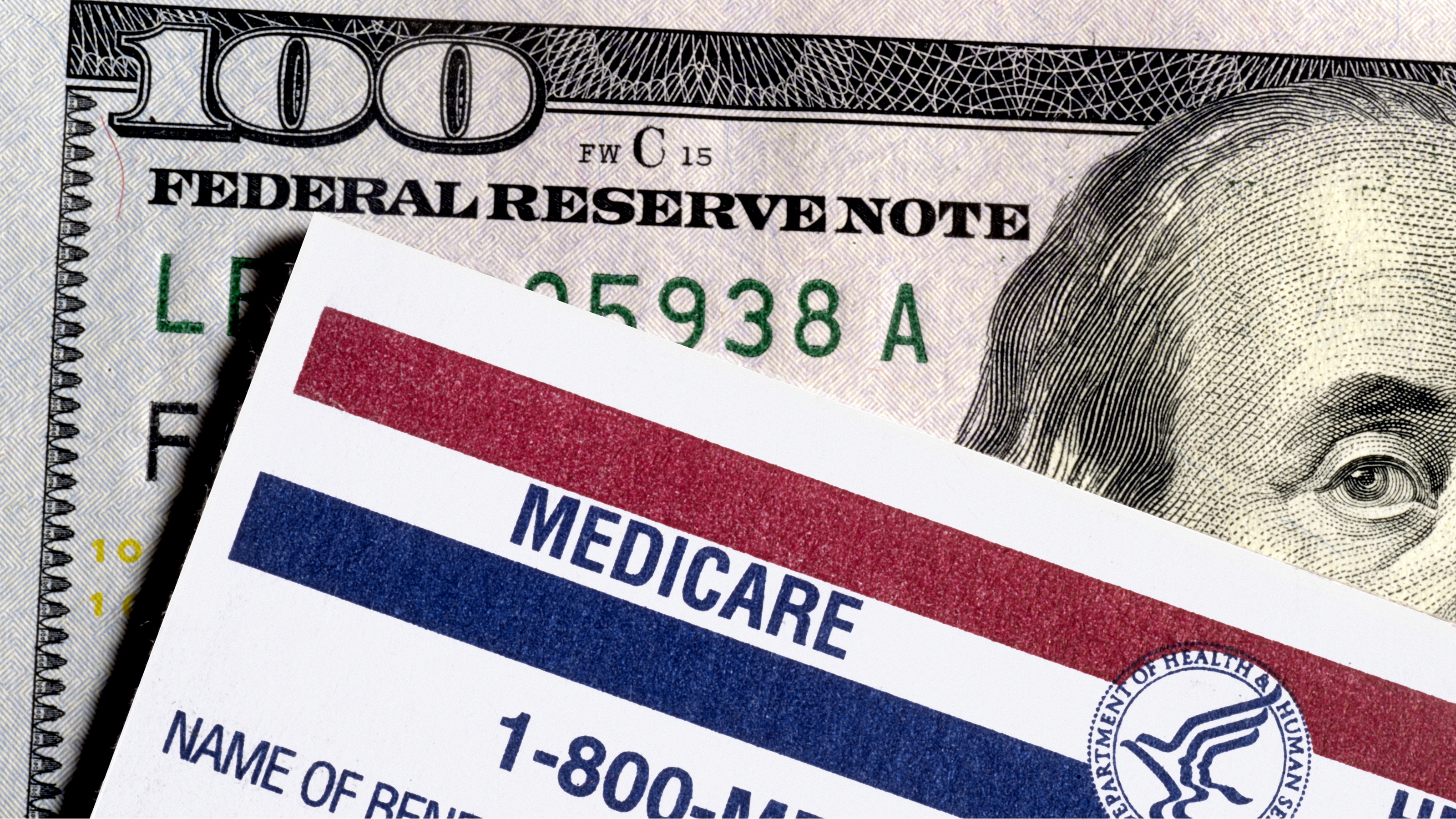Does Donald Trump Claim Social Security Benefits?
Social Security is a hot topic. I thought it would be interesting to see if President Trump and previous presidents collect Social Security benefits.


President Donald Trump celebrated his 79th birthday this June; that means he has been eligible to claim reduced Social Security benefits since 2008, when he turned 62.
As he was born in 1946, his full retirement age (FRA) was 66, a milestone he hit in 2012. The same year Trump launched his first bid for the presidency in 2016, he turned 70. At that age, he would have been eligible to claim his maximum benefit by earning delayed retirement credits.
Does Trump claim Social Security benefits? According to his most recently available tax return, tax year 2020, he doesn’t claim Social Security benefits. The first lady won't be eligible to claim Social Security until 2037, when she turns 62.

Sign up for Kiplinger’s Free E-Newsletters
Profit and prosper with the best of expert advice on investing, taxes, retirement, personal finance and more - straight to your e-mail.
Profit and prosper with the best of expert advice - straight to your e-mail.
It’s not easy to find out whether our senators or representatives are claiming Social Security benefits. No one in any of the three branches — judicial, executive or legislative — is required to release their 1040s.
They do have to file financial disclosure forms, but the forms don’t reveal if the filer had reported Social Security benefits that were taxable or not.
Historic returns that are available don't reveal much; benefits only became taxable in 1984 after the passage of the 1983 Amendments to the Social Security Act. There would be no track record to follow without the taxation of benefits.
If you're wondering if presidents pay Social Security taxes on their income, they do, starting in 1984. The Social Security Act in 1983 brought members of Congress, the president and vice president, federal judges and most political appointees under the Social Security program.
The wages paid to Presidents Ronald Reagan, George H.W. Bush '41, Clinton, George W. Bush '43, Barack Obama, Donald Trump and Joe Biden were subject to FICA taxes.
My best resource for presidential tax return records was the Tax Analyst’s Tax History Project, which includes presidential tax returns going back to Woodrow Wilson. Let’s take a look at which politicians claim Social Security benefits.
President Donald Trump and Melania Trump did not claim benefits as of 2020

President Trump didn't release his tax returns; his tax returns from 2015 through 2020 were released by the House Ways and Means Committee that voted along party lines to release the returns on December 20, 2022.
While none of these returns show any Social Security income, they do provide other information. On their 2020 federal tax return (PDF), both Donald and Melania Trump checked 'Yes" to add $3 to the Presidential Election Campaign fund. They showed $915,171 in itemized deductions and $13,468,593 in tax overpayments. They elected to take $5,468,593 as a refund and apply the remaining $8 million to their 2021 estimated taxes.
Joe and Jill Biden have claimed benefits since 2008

Before running for the Senate in 1972, former President Biden worked at a few law firms, started one of his own, and managed properties on the side.
Joe Biden was born in 1942, and he and his '42 cohorts were eligible for full retirement benefits when they were 65 years and 10 months in 2008. That's also the first year the Bidens' joint tax return shows Social Security income of $6,534 (PDF). In 2023, the couple reported $64,254 in Social Security (PDF) income.
The Bidens' tax returns from 1998 through 2023 are available for review or scrutiny, depending on your political affiliation.
Hillary and Bill Clinton did not claim benefits as of 2015

Hillary Clinton was the first lady from 1993 to 2001. She and her husband, President Bill Clinton, were too young to collect Social Security when they were in the White House.
However, the tax returns from Hillary Clinton's presidential run in 2016 provide us with insight into the Clintons' finances. As of 2015, neither Hillary nor Bill Clinton collects Social Security benefits.
Hillary Clinton turned 62 in 2009 (PDF) and hit her FRA of 66 in 2013 (PDF). Bill Clinton became eligible for reduced benefits at 62 in 2008 and reached his full retirement age of 66 in 2012. The Clintons' joint tax returns from 2008 through 2015 (PDF), when they were eligible to collect benefits, show no Social Security income.
George H.W. and Barbara Bush did not claim benefits as of 1991

George H.W. Bush became the 41st president after two terms as vice president for Ronald Reagan. Bush was eligible to start receiving reduced benefits at age 62 in 1986. He reached his full retirement age in 1989 (PDF), a year after he was elected president. There are only three joint tax returns for the Bushes, from years 1989, 1990 (PDF) and 1991 (PDF), available for inspection. Those returns show no Social Security income.
Ronald and Nancy Reagan did not claim benefits as of 1987

Former President Reagan took office in 1981, the same year he would turn 70. He could have begun claiming Social Security benefits in 1973 at age 62. His full retirement age was 65, which he hit in 1976.
Until benefits became taxable in 1984, there was no definitive way to know if someone collected benefits outside of a personal statement or admission. The only relevant tax returns available for review are 1985 (PDF), 1986 (PDF) and 1987 (PDF) None of these (joint income) returns shows any Social Security income.
The clock is ticking on the Social Security trust fund
Social Security has often been called the "third rail of politics" because attempts to tinker with benefits have been met with immediate and vocal pushback.
What are the politicians afraid of? Older Americans vote in larger numbers than any other group. In 2024, 72.1% of those ages 65 to 75 and 71.2% of those age 75 and older voted, according to the Census Bureau. These two groups turn out to vote in higher numbers than other demographics. Less than half of those age 18 to 24 voted in the 2024 election cycle.
The Social Security and Medicare trust funds are on track to become insolvent in the next decade.
If nothing changes, Social Security’s Old-Age & Survivors Insurance (OASI) Trust Fund will be depleted by 2033, at which point benefits would be reduced by 21%.
The Medicare Trust Fund is in slightly better shape. It's estimated that future beneficiaries will need to save a little more than $100,000 to make up the shortfall if benefits are reduced.
Related Content
Profit and prosper with the best of Kiplinger's advice on investing, taxes, retirement, personal finance and much more. Delivered daily. Enter your email in the box and click Sign Me Up.

Donna joined Kiplinger as a personal finance writer in 2023. She spent more than a decade as the contributing editor of J.K.Lasser's Your Income Tax Guide and edited state specific legal treatises at ALM Media. She has shared her expertise as a guest on Bloomberg, CNN, Fox, NPR, CNBC and many other media outlets around the nation. She is a graduate of Brooklyn Law School and the University at Buffalo.
-
 Stock Market Today: S&P 500, Nasdaq Hit New Highs on Retail Sales Revival
Stock Market Today: S&P 500, Nasdaq Hit New Highs on Retail Sales RevivalStrong consumer spending and solid earnings for AI chipmaker Taiwan Semiconductor Manufacturing boosted the broad market.
-
 Higher Summer Costs: Tariffs Fuel Inflation in June
Higher Summer Costs: Tariffs Fuel Inflation in JuneTariffs Your summer holiday just got more expensive, and tariffs are partially to blame, economists say.
-
 New SALT Cap Deduction: Unlock Massive Tax Savings with Non-Grantor Trusts
New SALT Cap Deduction: Unlock Massive Tax Savings with Non-Grantor TrustsThe One Big Beautiful Bill Act's increase of the state and local tax (SALT) deduction cap creates an opportunity to use multiple non-grantor trusts to maximize deductions and enhance estate planning.
-
 Know Your ABDs? A Beginner's Guide to Medicare Basics
Know Your ABDs? A Beginner's Guide to Medicare BasicsMedicare is an alphabet soup — and the rules can be just as confusing as the terminology. Conquer the system with this beginner's guide to Parts A, B and D.
-
 I'm an Investment Adviser: Why Playing Defense Can Win the Investing Game
I'm an Investment Adviser: Why Playing Defense Can Win the Investing GameChasing large returns through gold and other alternative investments might be thrilling, but playing defensive 'small ball' with your investments can be a winning formula.
-
 High Mortgage Rates Are Holding My Retirement Hostage: Can I Still Downsize and Retire?
High Mortgage Rates Are Holding My Retirement Hostage: Can I Still Downsize and Retire?We ask retirement wealth advisers what to do.
-
 Five Big Beautiful Bill Changes and How Wealthy Retirees Can Benefit
Five Big Beautiful Bill Changes and How Wealthy Retirees Can BenefitHere's how wealthy retirees can plan for the changes in the new tax legislation, including what it means for tax rates, the SALT cap, charitable giving, estate taxes and other deductions and credits.
-
 I Want to Buy an Annuity, but I'm Scared I'll Get Ripped Off. Should I Get One Anyway?
I Want to Buy an Annuity, but I'm Scared I'll Get Ripped Off. Should I Get One Anyway?An annuity is a way to achieve lifetime income in retirement, but you need to understand how this product works before making a purchase.
-
 Can AI Help With Your Finances?
Can AI Help With Your Finances?ChatGPT and other artificial-intelligence tools will streamline certain tasks, but don't count on them to get everything right.
-
 I'm a Financial Planner: Here Are Five Smart Moves for DIY Investors
I'm a Financial Planner: Here Are Five Smart Moves for DIY InvestorsYou'll go further as a DIY investor with a solid game plan. Here are five tips to help you put together a strategy you can rely on over the years to come.